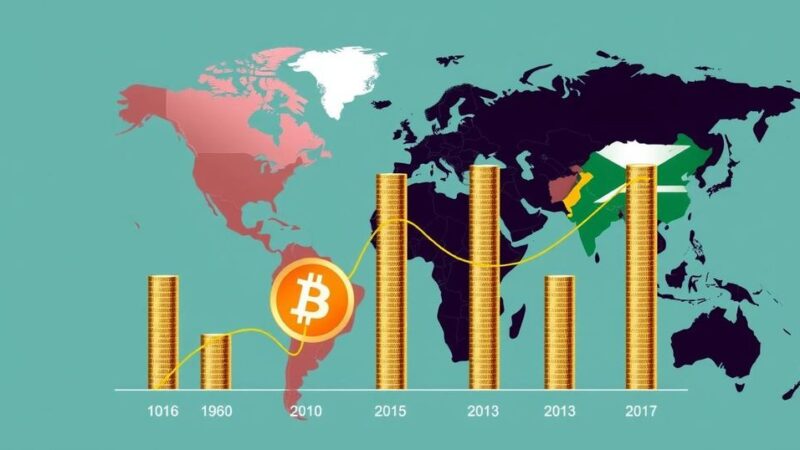Brazil’s real fell to a record low against the US dollar, trading at 6.20 reais amid investor worries about government fiscal discipline. The currency has decreased by 25% this year, with rising inflation prompting the central bank to raise interest rates to 12.25%. Despite economic growth projections of over 3% and low unemployment, President Lula opposes high interest rates, fearing adverse effects on investment and spending.
On Tuesday, Brazil’s currency, the real, reached a historic low against the US dollar, trading at an unprecedented rate of 6.20 reais mid-session. This decline reflects investors’ growing concerns regarding the government’s capacity to address escalating public expenditures. Since the beginning of the year, the real has depreciated by approximately twenty-five percent against the dollar, which has persisted above the significant threshold of six reais since late November.
Investor sentiment appears to be influenced by worries about fiscal discipline under the administration of President Luiz Inacio Lula da Silva, especially following the government’s budgetary measures announced last month. These adjustments involved tax reductions for the middle class alongside projected expenditure cuts totaling around $11 billion, further raising apprehensions about economic stability.
In light of persistent high inflation, Brazil’s central bank recently increased its benchmark interest rate to 12.25 percent, marking the third consecutive rise. The bank has signified that additional hikes may occur in upcoming meetings, underscoring the central bank’s commitment to controlling inflation. Despite these challenges, Brazil’s economy is projected to grow by more than three percent this year, and the unemployment rate has reached its most favorable level in a dozen years.
President Lula has articulated his opposition to high interest rates, expressing concerns that they may hinder corporate investment and consumer spending. Recent comments made to TV Globo highlight his discontent, as he remarked: “The only thing not going right in this country is that the interest rate is above 12 percent.” Lula’s statements reflect the ongoing tension between fiscal policy and economic growth in Brazil.
The depreciation of Brazil’s real reflects broader economic challenges faced by the country, particularly in terms of fiscal management and public spending. Recent policy changes initiated by President Lula’s government, including budget reforms and tax reductions, have raised investor skepticism regarding the sustainability of the economy amidst high inflation. The central bank’s response to these challenges through increased interest rates demonstrates a proactive approach to stabilize the financial landscape, yet it poses potential downsides for growth and consumer credit, raising critical questions about the future path of Brazil’s economic policies.
In summary, Brazil’s real has experienced a significant depreciation, attributed to investor concerns over government fiscal policy and rising public spending. The central bank has taken steps to combat high inflation through increased interest rates, yet the broader economic outlook remains robust, with positive growth forecasts and declining unemployment. President Lula’s opposition to high interest rates underlines the ongoing debate over balancing fiscal discipline with economic growth.
Original Source: www.barrons.com






